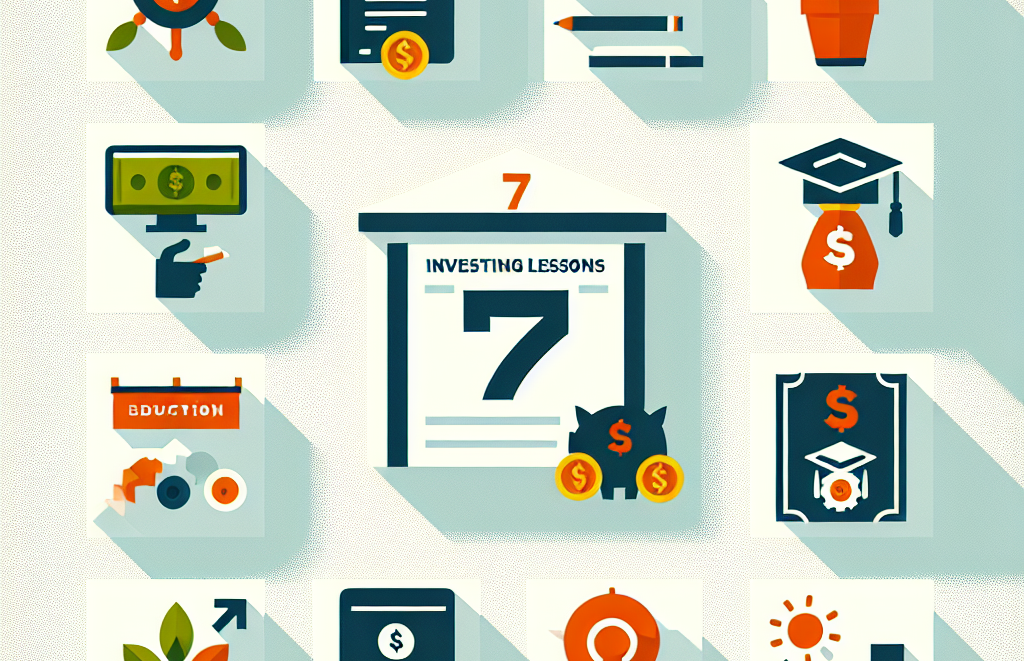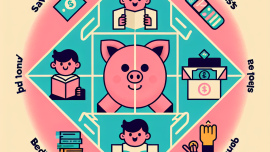
7 Investing Lessons I Teach My Students Before They Leave Sixth Form
Quit Your Job? Here’s What to Know Before You Walk Away
So, you’re thinking about quitting your job. Maybe you’ve daydreamed about it during your third Zoom meeting of the day or while your boss cc’d you on yet another email chain with no end and no purpose. I get it. I’ve been there. But before you channel your inner dramatic exit — “I’m outta here!” — let’s take a step back and make sure you’re not just emotionally ready to quit, but financially prepared too.
Why People Quit (And Why You’re Not Alone)
The workplace has changed — and for many, not for the better. Burnout, toxic management, lack of flexibility, or even the desire to chase a more fulfilling, value-aligned life are all legitimate reasons to consider turning in your resignation. You’re not crazy, and you’re definitely not the only one. The Great Resignation wasn’t a fluke; it was a wake-up call. But the decision to leave a predictable paycheck doesn’t just impact your 9 to 5 — it reverberates throughout your entire financial future.
Let’s walk through the must-knows, non-negotiables, and smart steps to leave your job responsibly, without tanking your financial security.
1. Know Your Numbers — The “Can I Actually Afford This?” Check
Before you even whisper the word “quit,” take a hard look at your finances. Open your banking app (yes, even if it stings) and calculate the basics:
- Your fixed monthly expenses (rent, utilities, groceries, loan payments)
- Your variable expenses (entertainment, dining out, subscriptions — we see you, Netflix, Spotify, and HBO Max)
- Your savings – especially liquid savings that are easily accessible
You should have at least 3-6 months of living expenses saved up before you hand in your notice. Why? Because it might take time to find your next gig, giggle through your sabbatical, or get your entrepreneurial venture off the ground.
Rachel’s Pro Tip:
I suggest splitting your savings into two categories: Survival Fund and Freedom Fund. The Survival Fund keeps the lights on; the Freedom Fund lets you explore what’s next without panic buying ramen.
2. Consider Health Insurance Before It’s Gone
It’s the benefit you don’t think about until you don’t have it. Once you quit, that sweet employer-sponsored health insurance disappears faster than leftover cake in the breakroom.
- See if you can get coverage through your partner or spouse’s plan.
- Check if you’re eligible for Marketplace plans or COBRA (though COBRA can be ridiculously expensive).
The key is to plan this in advance, not in the ER waiting room with a sprained ankle and no coverage.
3. Explore Alternative Income Streams (Even Before You Quit)
Listen, quitting doesn’t have to mean swinging into full-time unemployment. Start building side income streams while you’re still employed:
- Freelance gigs or consulting in your area of expertise
- Remote side jobs like virtual assistance, tutoring, or content creation
- Monetizing a skill — like photography, copywriting, or even dog walking!
Not only does it diversify your income, it also builds confidence — and a safety net. You don’t want financial desperation to drive you straight back into another soul-sucking job you hate.
4. Don’t Burn Bridges (Even If You Want To)
Tempting, I know. But please don’t post that scathing goodbye email or tell off your manager in a blaze of glory. Instead, exit professionally. You never know when you’ll need a letter of recommendation, freelance referral, or just a sympathetic ear in your industry.
Leave Like a Boss by:
- Giving proper notice — usually two weeks, or more if your contract requires it
- Finishing strong — complete projects, leave documentation, and set teammates up for success
- Expressing gratitude — genuine or… politely fabricated
Quitting gracefully keeps your reputation intact — and your options open.
5. Don’t Touch Your Retirement Accounts (Seriously, Don’t)
I know your 401(k) might look like a juicy piggy bank when you’re in between paychecks, but step away from the temptation. Early withdrawals come with taxes and penalties that can completely kneecap your future growth.
- Roll over your 401(k) into an IRA or another retirement plan with low fees
- Keep your hands off your Roth IRA — even if it’s technically accessible
Your future self — retired, sipping margaritas, and financially secure — will thank you.
6. Have a Plan for What’s Next
“Quit now, figure it out later” sounds liberating… until two months pass and Netflix judges you for finishing five seasons in a week. Even if you’re taking a break, set intentional goals for that time:
- Do you want to change industries, go freelance, or start a business?
- Are you taking time off to rest, travel, or upskill?
- Do you need to build a personal brand or portfolio?
Use this transition not just to escape burnout, but to build toward freedom. You’re not just quitting your job — you’re designing your life.
7. Know When to Stay (Yep, I Said It)
Here’s the twist: sometimes, the job isn’t the real enemy — burnout is. Before you make a permanent decision, ask yourself:
- Can I negotiate better work conditions, schedule, or compensation?
- Would a three-week vacation solve 80% of my frustration?
- Is this a bad season — or a truly bad fit?
Quitting isn’t always the answer. Know the difference between temporary discomfort and long-term misalignment. One deserves a break, the other a breakout plan.
The Bottom Line: Quit With Intention, Not Impulse
Walking away from a job can be the best decision you ever make — but it shouldn’t be the fastest one you make. Prepare wisely. Understand your financial runway. Build backup plans. And above all, remember: you’re not running away. You’re choosing yourself.
Need a confidence boost or clarity before quitting? Learn more about transitioning to financial independence on our About Us page or reach out via our Contact page. We’re here for you — spreadsheet in hand and pom-poms in the other.









Leave a Reply